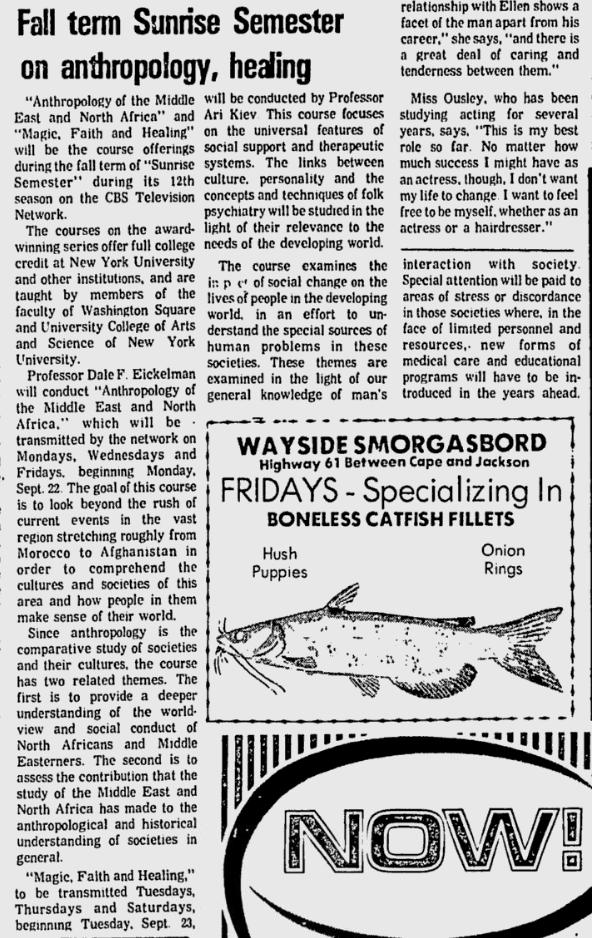Fall term Sunrise Semester on anthropology, healing
“Anthropology of the Middle East and North Africa” and “Magic, Faith and Healing” will be the course offerings during the fall term of “Sunrise Semester” during Its 12th season on the CBS Television Network.
The courses on the award-winning series offer full college credit at New York University and other institutions, and are taught by members of the faculty of Washington Square and University College of Arts and Science of New York University.
Professor Dale F. Eickelman will conduct “Anthropology of The Middle East and North Africa.” which will be transmitted by the network on Mondays, Wednesdays and Fridays, beginning Monday. Sept. 22 The goal of this course is to look beyond the rush of current events in the vast region stretching roughly from Morocco to Afghanistan in order to comprehend the cultures and societies of this area and how people in them make sense of their world.
Since anthropology is the comparative study of societies and their cultures, the course has two related themes. The first is to provide a deeper understanding of the world-view and social conduct of North Africans and Middle Easterners. The second is to assess the contribution that the study of the Middle East and North Africa has made to the anthropological and historical understanding of societies in general.
“Magic, Faith and Healing.” to be transmitted Tuesdays. Thursdays and Saturdays, beginning Tuesday. Sept 23, will be conducted by Professor Ari Kiev This course focuses on the universal features of social support and therapeutic systems. The links between culture, personality and the concepts and techniques of folk psychiatry will be studied in the light of their relevance to the needs of the developing world.
The course examines the impact of social change on the lives of people in the developing world, in an effort to understand the special sources of human problems in these societies. These themes are examined in the light of our general knowledge of man’s interaction with society. Special attention will be paid to areas of stress or discordance in those societies where, in the face of limited personnel and resources, new forms of medical care and educational programs will have to be introduced in the years ahead.


